Love Your Pet, Love Your Vet campaign: How stress is taking its toll on our veterinarians
The stress of daily euthanising of pets, abuse from clients, online trolling and lack of support from bosses is pushing Australia’s veterinarians to the brink, with startling figures showing a vet commits suicide on average once every 12 weeks.
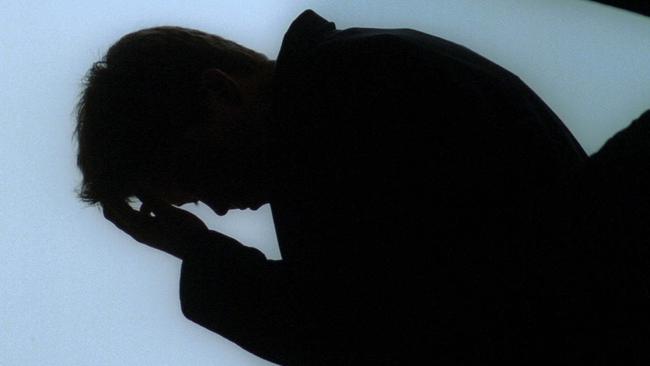
Leader
Don't miss out on the headlines from Leader . Followed categories will be added to My News.
The devastating toll of euthanising animals, abusive pet owners and lack of support from bosses are contributing reasons for the shocking suicide rates among veterinarians.
On average, a vet kills themselves every 12 weeks — one of the highest rates of suicide in the country at four times the national average, according to psychologist and author Dr Nadine Hamilton, founder of Love Your Pet, Love Your Vet campaign.
And it’s not just vets who are suffering. Vet nurses and others in the industry are dying alongside their colleagues — but no one is counting.
Mt Waverley vet Dr Robbie Anderton is part of the campaign, which aims to raise awareness of the issue, reduce stigma around seeking help and increase community support of veterinary teams.
“On average we put to sleep an animal every 1.5 days,” Dr Anderton said.
“Some days we euthanise four in one day.”
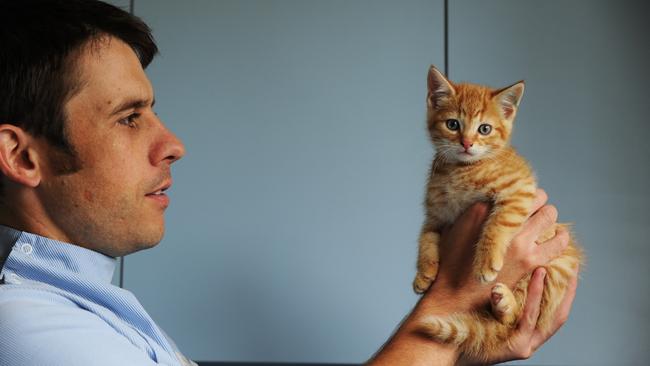
He said vets and nurses were constantly copping the brunt of the blame from pet owners, combined with pressure from unsupportive bosses.
The big thing is stress, he said.
“You have the stress of work, stress at home, and the feeling of overall despair, ‘how can I get out of this?’” Dr Anderton said.
“We have clients abusing us, and that could be a tipping point.”
Everyone is trying to do our best, he said.
“With the cost of treatment, people lay it on us all the time – ‘if you love animals, you should charge less’,” Dr Anderton said.
He said vets had both the medical knowledge and access to the drugs to take their own lives.
“It’s the spectre hiding in the background of the profession,” Dr Anderton said.
“People who are attracted to the industry are perfectionists; anything can go wrong and you’re thinking on your feet.
“Forty years ago it was ‘give it your best shot’, but if something goes wrong now, people want someone to blame.”
He said the stress was forcing verts out of the industry.
“Nurses are in it as well. They’re holding the animals as we put them to sleep. They’re dealing with the grumpy clients as well as all the other stresses of life,” Dr Anderton said.
Only a few weeks ago, two Queensland women, a vet and a nurse, killed themselves on the same day in unrelated cases.
Last year, two prominent vets, doctors Flynn Hargreaves and Vadim Chelom committed suicide.
Psychologist and author Dr Hamilton said there were more deaths throughout the year that were not officially recorded.
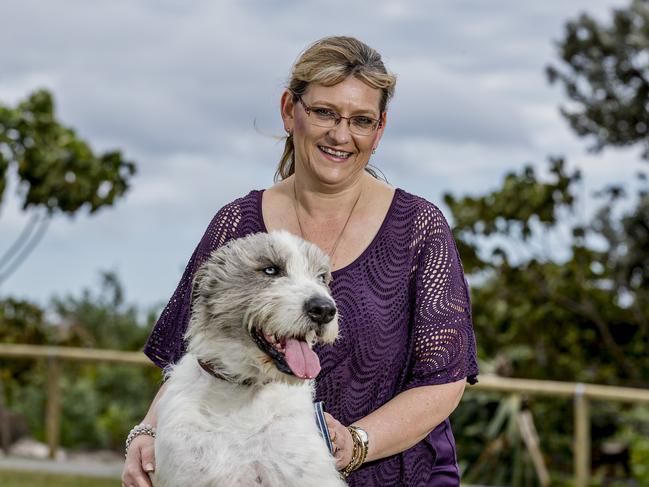
“I think this year alone I have heard of approximately 11 suicides within the profession — but I would estimate there could be more,” Dr Hamilton said.
She said many people who chose to be vets were often perfectionists and blamed themselves for any perceived failure.
Dr Hamilton said bullying was also an issue in the industry — from management down to co-workers.
‘TRUST YOUR INSTINCT AND PUSH FOR HELP’
Almost a year after her husband took his own life, the wife of a Melbourne veterinarian is urging the community to push harder for mental health support.
Father of six, Dr Vadim Chelom committed suicide on November 29, 2018, following online trolling.
Now Vadim’s widow Adina Chelom is advocating for more to be done to support those who are struggling with mental health.
“I think whenever people are aware something is off, trust your instinct and push for help as soon as you can,” she said.
“Push and push and don’t take no for an answer.
“Seek help above and beyond your GP. They’re not equipped — it takes a team.”

Vadim had been appointed chief executive of Pawssum Vets, a national mobile vet service, in October last year, shortly before his death.
She said her husband always focused on how he could provide the best quality care and “the pressure was huge”.
“He became increasingly fatigued, putting too much into making work successful and when he came home there was not a lot left,” Adina said.
“He put on a brave face. He was happy and smiley and a wonderfully fun person but too scared to admit there were bee stings going on.
“He preached and didn’t practice.”
Vadim struggled with depression on and off for most of the time the couple were together and the last two years were a “tremendous struggle”.
“Trying to find a balance between work and family, and he put himself under immense pressure to be available for work, family and clients,” Adina said.
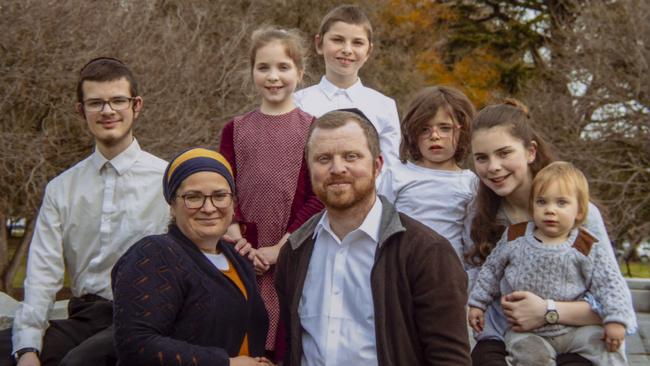
A few months before he died, Vadim received backlash online for his position on vet care.
“He was devastated and he had to hold back in his responses,” she said.
“He felt so low and couldn’t bounce back. He was so unsure of himself as a vet and leader — it knocked him and shook his identity.”
The online trolling impacted Vadim to the point he had to be hospitalised.
“He got in such a low state he spent a week in hospital at The Alfred,” she said.
“We knew he needed a medication adjustment but there was no time.”
“He was so low he couldn’t be helped anymore.”
It was only three days after being released from hospital that Vadim took his own life.
“He was still really ill and struggling,” she said.
“I think he planned it and was acting as well. They didn’t pick up on it.”
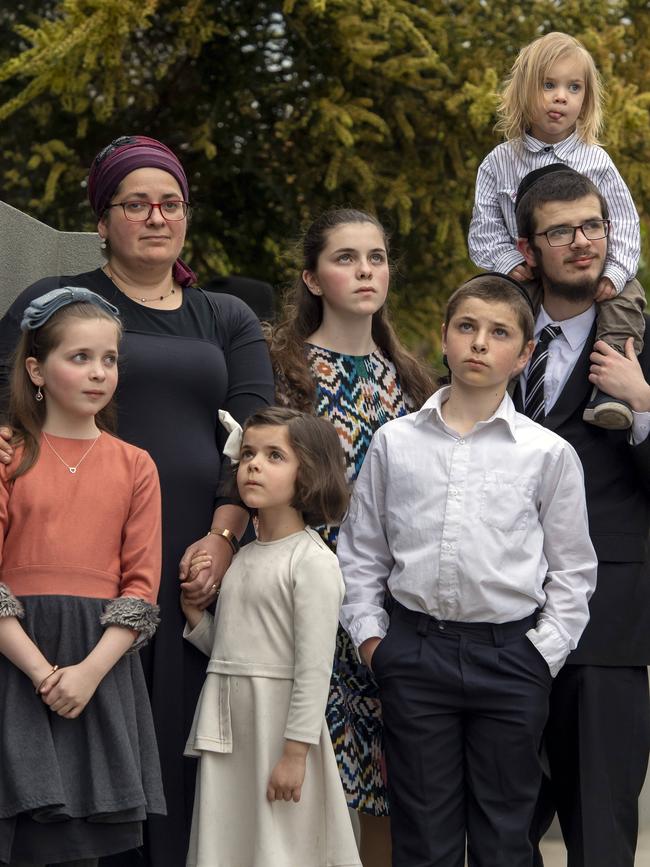
Vadim had gone back to working when Adina realised she couldn’t get in contact with him.
“When I realised I called police and the local community organisations to help me find him,” she said.
“He was found by police … in his car around 2am.”
She said people suffering mental health issues needed to be supported both physical and medically.
“It’s a community-wide issue,” she said.
“We expect our carers to be strong but we’re stopping them from getting help by that expectation.”
CANINE VIRUS RAMPANT IN MELBOURNE’S INNER EAST
PUSH FOR BURWOOD ONE ‘ATROCIOUS’ CARPARK REVAMP
VOTE: DO YOU KNOW MELBOURNE’S BEST MECHANIC?
“My husband was a support to people with many issues.
“He pushed people to get help and take more breaks.
“We need more leaders like that.”
“Your health comes first.”
Details: loveyourpetloveyourvet.com.au


